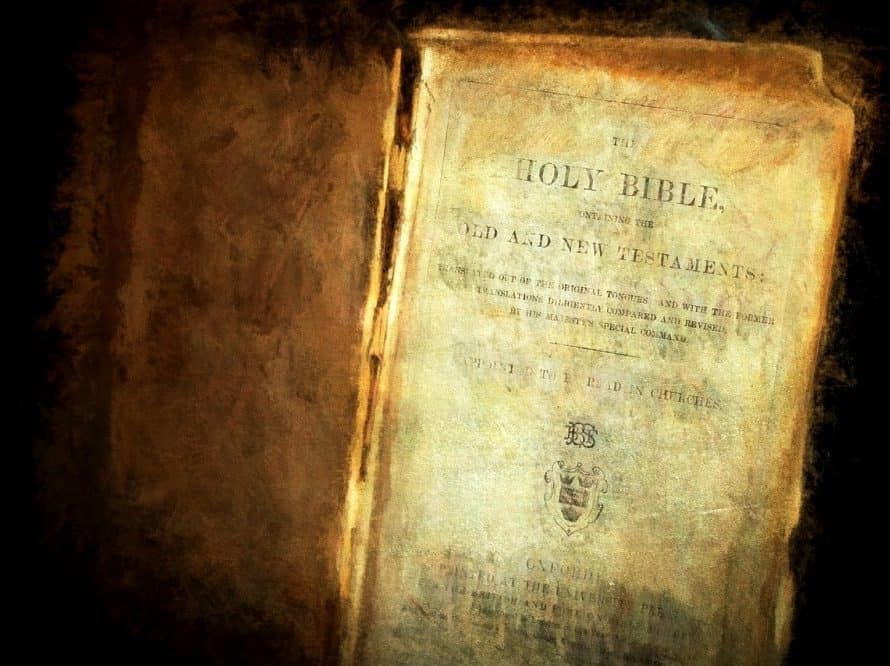This is the last in a series of columns on the inspiration, inerrancy, infallibility, and sufficiency of Scripture.
When Christians say the Bible is true, we often use terms to describe the manner in which God has spoken to us through His written Word.
One such term is “sufficient.” But what does that mean?
All the words God intended
“The sufficiency of Scripture means that Scripture contained all the words of God he intended his people to have at each stage of redemptive history, and that it now contains all the words of God we need for salvation, for trusting him perfectly, and for obeying him perfectly,” writes Wayne Grudem in Systematic Theology.
By sufficient, we mean the Bible is the supreme authority in all matters of doctrine and practice. It’s what the Reformers called sola scriptura – by Scripture alone.
In practical terms, this means the Bible answers life’s most important questions, such as: Is there a God? What’s wrong with the world? And what happens when I die?
Not that Scripture is an exhaustive catalogue of everything God knows, for omniscience cannot be coanfined to a single set of divinely inspired writings.
Equally important, sufficiency does not prevent God from speaking to us today through Spirit-filled leaders, dreams and visions, or even an audible voice if He so chooses, although these forms of communication are better classified as illumination, not revelation, and they must conform to Scripture.
Conscience and creation
Sufficiency doesn’t limit God’s truth to the pages of the Bible, for He has revealed Himself to all people in general revelation, specifically in conscience and in creation.
Paul explains in Romans 1, “For God’s wrath is revealed from heaven against all godlessness and unrighteousness of people who by their unrighteousness suppress the truth, since what can be known about God is evident among them, because God has shown it to them” (vv. 18-19).
Paul continues, “From the creation of the world His invisible attributes, that is, His eternal power and divine nature, have been clearly seen, being understood through what He has made. As a result, people are without excuse” (v. 20).
God has further revealed Himself in the person of Jesus Christ, who doesn’t just know the truth, but is “the way, the truth, and the life” (John 14:6). After His ascension, the apostle John remarks that if all the things Jesus did during His earthly ministry were recorded, “not even the world itself could contain the books that would be written” (John 21:25).
A caution to us
While not limiting God, sufficiency serves as a caution to us. It means no person may add, on his or her own initiative, any word to those God already has spoken. Nor may a person take away from God’s revelation in Scripture.
John’s severe warning near the end of Revelation is well-known: “I testify to everyone who hears the prophetic words of this book: If anyone adds to them, God will add to him the plagues that are written in this book. And if anyone takes away from the words of this prophetic book, God will take way his share of the tree of life and the holy city, written in this book” (Rev. 20:18-19).
While commentators generally agree that John’s admonition applies specifically to the Apocalypse, it’s important to remember that Revelation affirms the great doctrines of the Christian faith, so that tampering with Revelation is tampering with Scripture.
When Muhammad proclaimed he was sent to restore true monotheism and offered the Qur’an as the perfect and final revelation of God, he added to Scripture while taking away key doctrines like the Trinity, the deity of Christ, and salvation by grace through faith.
When Joseph Smith announced that all Christian denominations were apostate and that he alone was God’s chosen vessel to restore the faith, he and future Latter-day prophets added to the Scripture with the Book of Mormon, Doctrine and Covenants, and Pearl of Great Price, while redefining biblical doctrines of the triune God, the uniqueness of Christ, and the total depravity of human beings.
And when the Catechism of the Catholic Church states, “Both Scripture and Tradition must be accepted and honored with equal sentiments of devotion and reverence,” it prompts evangelicals like Rob Rienow to write, “The battle in many Christian circles today is not ‘Is the Bible true?’ But ‘Is the Bible enough?’ The challenge of the 20th century was over inerrancy; the challenge in the 21st century is over sufficiency.”
Martin Luther risked his life for the sufficiency of Scripture. Some of his most famous words were uttered in 1521 at the Diet of Worms: “Unless I am convinced by Scripture and plain reason – I do not accept the authority of popes and councils, for they have contradicted each other – my conscience is captive to the Word of God.”

